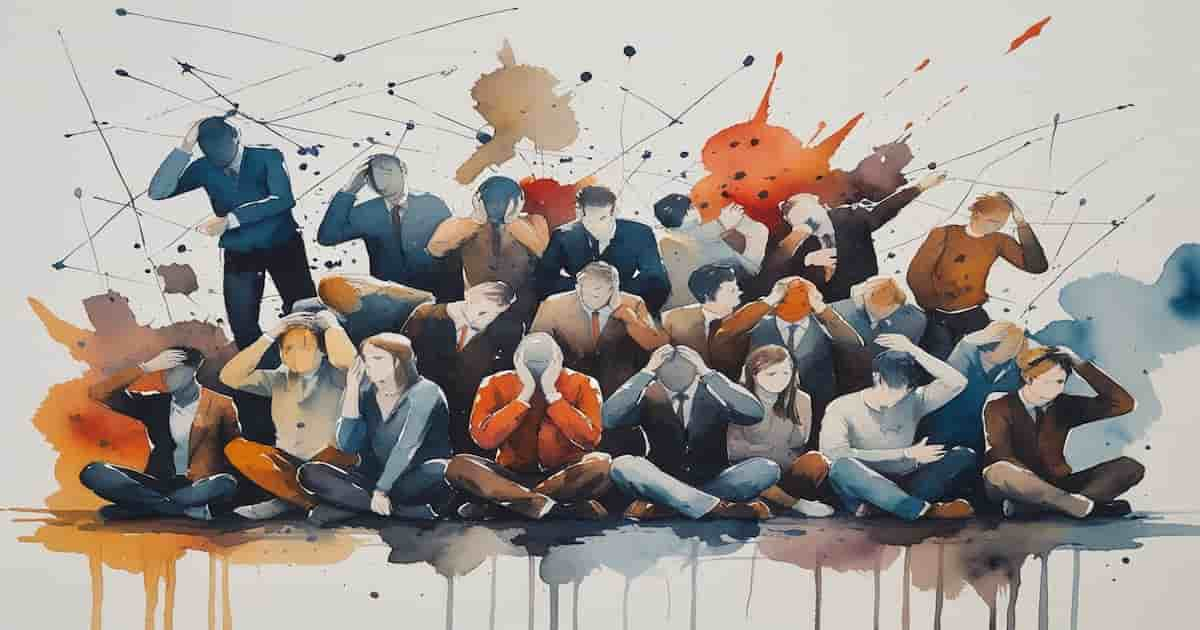
When we feel irritated by the actions or attitudes of others, it often reflects aspects of their own internal experience. This dynamic opens a path to deeper self-awareness by recognizing the emotions and triggers that surface during such interactions. Rather than immediately assigning blame outwardly, examining these reactions can offer valuable insight.
“Everything that irritates us about others can lead us to an understanding of ourselves” – Carl Jung
Learning to question personal responses and motivations encourages growth. This approach fosters a shift from frustration and resentment toward understanding and acceptance. Although challenging, this process can lead to increased emotional freedom, improved relationships, and a lighter, more joyful perspective on life.
A practical example can be seen when someone attributes negative feelings to external sources, such as family or peers. By probing the underlying reasons for these feelings, we may discover the true origin lies within their own perceptions or unresolved issues. This realization often brings a profound sense of relief and empowerment.
Benefits of this self-reflective practice:
- Greater emotional resilience
- Improved personal relationships
- Increased capacity for empathy
- Reduced blame and frustration
- Enhanced self-awareness
The process begins by identifying specific “buttons” that others seem to push that trigger us, then exploring why those buttons trigger discomfort or anger. From this understanding, conscious choices can be made to respond differently, breaking patterns of habitual blame.
| Step | Description | Outcome |
|---|---|---|
| Notice irritation | Recognize moments of annoyance | Awareness of internal triggers |
| Question reactions | Reflect on why irritation arises | Deeper self-understanding |
| Accept responsibility | Own the emotional response | Empowerment and control |
| Choose a response | Decide how to react consciously | Healthier interpersonal dynamics |
Adopting this method requires patience and commitment, but it can transform the way life’s challenges are perceived and experienced. The ongoing rhythm of personal inquiry and adaptation brings a more fluid and rewarding relationship with oneself and others.
Ultimately, this perspective encourages embracing discomfort as an opportunity for learning rather than conflict. It underscores an active role in managing feelings and interactions, which leads to a more harmonious and fulfilling experience.
Frequently Asked Questions
What psychological factors contribute to feeling annoyed by others’ actions?
People often react negatively to behaviors they find irritating due to projection, where they attribute unwanted traits onto others. This can stem from unresolved internal conflicts or traits they dislike in themselves. Cognitive biases and emotional triggers also increase susceptibility to irritation in social interactions.
In what ways can feeling irritated by others increase self-understanding?
Irritation acts as a mirror reflecting personal sensitivities or unresolved issues. By examining why certain behaviors provoke discomfort, individuals can uncover hidden aspects of their personality or emotional state. This process can foster greater self-awareness and promote personal growth.
How did Carl Jung view irritations with others in relation to personal development?
Carl Jung suggested that the traits we find most irritating in others often highlight aspects of ourselves that need attention. He believed that acknowledging these reflections enables a deeper understanding of one’s inner world. Jung saw this dynamic as a tool for psychological healing and transformation.
Is it reasonable to feel annoyed by others, and what drives this emotion?
Feeling irritation can be justified when others’ actions conflict with personal values or boundaries. However, irritation frequently arises from underlying psychological patterns such as unmet needs, fears, or defensive mechanisms. Recognizing these causes helps in responding constructively rather than reacting impulsively.
How do typical annoyances appear in daily encounters?
Common irritations include behaviors like interrupting, inconsistency, or lack of consideration. These often trigger frustration because they disrupt expectations or social harmony. Such everyday annoyances can be subtle yet recurring sources of tension in relationships.
Why might someone feel annoyed without an obvious reason, and what does this suggest psychologically?
Irritation without a clear cause may indicate repressed emotions or stress unrelated to the immediate situation. It can also reveal subconscious conflicts or sensitivities. This kind of unexplained annoyance invites introspection to identify and address deeper emotional factors.
Related content: